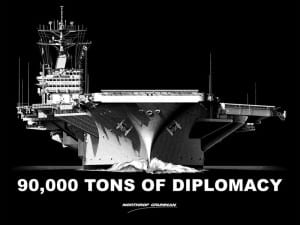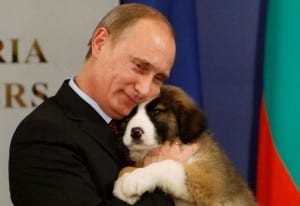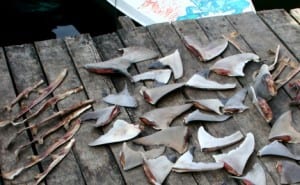Russia has strong grounds to believe Syria chemical attack was provocation – Putin

Photo: RIA
Russian President Vladimir Putin said he had strong grounds to believe that an August 21 chemical attack in Syria was staged by opponents of Syrian President Bashar al-Assad.
“We have every reason to believe that this is a provocation – deliberate and smart, but at the same time, a primitive technique. They took an old Soviet-made missile and launched it from the territory controlled by the Syrian army”, said Russian President during a meeting with the members of the international discussion club “Valdai”.
“The main thing is that it said ‘Made in the USSR.’ And that wasn’t the first time chemical weapons were used in Syria. Why didn’t they investigate the previous incidents?” Putin said.
Putin said the incident should be thoroughly investigated.
“If we eventually, no matter how hard it will be, can get an answer to the question as to who did that, who committed hat crime, and that is, no doubt, a crime, the next step will be taken, when we and our colleagues in the UN Security Council will determine the degree of responsibility of those who committed that crime,” Putin said.
The use of force against Syria must not be discussed in the US Congress. Instead, it must be a topic for discussion in the UN Security Council, said Putin.
Russian President said he regrets that the American Parliamentaries refused to continue a bilateral dialogue on Syria, highlighting that such discussions are very important.
Putin has expressed surprise about the statements made by some political scientists that the initiative to put Syrian chemical weapons under control helped US President Barack Obama “save his face.”
“I don’t think this initiative to put Syrian chemical weapons under control helped President Obama save face, like you said,” said Putin responding to a question from a US political scientist.
“It’s no about anyone’s face or about saving anyone,” Putin said. “It was his [Obama’s] decision based on a real analysis of the situation. I’m very happy that we see eye to eye on this matter,” Putin said.
Latest developments suggest Syria is willing to give up all chemical arms, said Putin.
“I can’t be 100% sure that it will be possible to being everything to completion, but all that we have seen over the past few days instills confidence that it will be done,” Putin said when asked whether President Bashar al-Assad could be expected to give up all of Syria’s chemical arsenal.
“At this point the situation is that Syria has accepted our proposal and is prepared to follow the plan that the international community is drawing up on the UN floor,” he said.
Moreover, “Syria has announced that it is willing to join, and not just willing but already considers itself a signatory to the international convention on the nonproliferation of chemical weapons,” Putin said.

Responsibility for Syria rests with everyone, said Putin. He called on the international public not to blame only Russia for the situation with Syria in connection with its initiative on the destruction of Syrian chemical weapons:
“This is not the first time I hear that special responsibility now rests with me. Special responsibility rests with all of us, and it is equal. If the attempts to resolve the problem peacefully fail, it will be very bad,” Putin said.
Russian President said the parties to the conflict in Syria should be made to begin dialogue.
“No matter how difficult it is, we should make them, find points of contact, make them reach agreements, find this balance of interests. Then the situation in the country can be stable for some time and maybe even improve,” Putin said.
He underlined that Russia has no special interests in Syria that cause it to keep the current administration in the country.
“We have no exclusive interests in Syria that we pursue by keeping the current government,” said Putin.
He added that already expressed this in his New York Times article. President also explained why he decided to write it in the first place:
“This idea came to my mind by accident. I saw that Obama decided to make the Senate and Congress to discuss the possibility of a military strike against Syria. I followed the way the discussion was unfolding. I just wanted to make people, who were going to express their opinion on the problem, understand our position, my own position.”
“They brought Obama’s speech to me. When I started reading it, I realized that almost nothing had changed. I put it aside without reading it to the end. Then I thought: “No, I should look through it to the end. When I finished, it was clear to me that all that was written in the article wasn’t enough. As you understand it said the American nation was exceptional. Then I took my article and wrote by hand another passage,” Putin added.
Putin commented on the latest John McCain article: “I think this American politician lacks knowledge about Russia, he would be better off visiting “Valdai.”
President recalled McCain’s decision to get his article published in the newspaper Pravda.
“He [the senator] wants to get published in a publication that is now the most authoritative and widespread. Pravda is a respected publication of the Communist Party, which is now in opposition, but the level of its [the paper’s] dissemination in the country is now minimal,” Putin said.
Russia may hand over evidence of rebels’ chemical weps use to UN today
Russia may provide the UN Security Council with evidence implicating Syrian rebels in the use of chemical weapons as early as today, Voice of Russia’s Polina Chernitsa has cited Putin’s Middle East envoy as saying Thursday.
Mikhail Bogdanov of the Russian foreign office said on Thursday the findings might be handed over to the UN “either tonight or tomorrow.”
Russia seeks UN resolution to prop OPCW deal with Syria
Russia hopes that the new UN Security Council’s resolution on Syria will shore up the anti-chemical weapons organization’s agenda on the country’s toxic stockpile.
Voice of Russia’s Polina Chernitsa has quoted Putin’s Middle East envoy Mikhail Bogdanov as saying today the resolution would support a deal for Syria to scrap its chemical arms.
“OPCW’s decisions will serve as bedrock for the UN Security Council’s resolution,” Mr. Bogdanov said.
Russia seeks to build bridges between Syria’s split opposition
Russia has offered to bring together representatives of Syria’s numerous opposition groupings in an attempt to bridge the gaps between them.
The VoR correspondent, Polina Chernitsa, reports that Putin’s Middle East envoy Mikhail Bogdanov suggested Moscow as a possible platform for reconciliation meetings betewen representatives of Syrian opposition factions.
“We are open for contacts with the opposition, as well as for promoting those contacts between opposition activists,” Mr. Bogdanov said.

Syria ready to work with anti-chemical weapons organization in full
Syria is deeply committed to cooperate with the global Organization for the Prohibition of Chemical Weapons (OPCW), Putin’s Middle East envoy said Thursday, adding the Assad government was ready to an immediate and full partnership.
Commenting on the recent Damascus visit of Russia’s deputy foreign chief Sergei Ryabkov, Mikhail Bogdanov said it yielded “good results” and “gave answers to many questions that arose before this trip”, Voice of Russia correspondent Polina Chernitsa reports.
Mr. Bogdanov said the overall result of Ryabkov’s trip to Syria was that it confirmed Syria’s compliance with the OPCW.
Syria willing to hand over chemical weapons to any country willing to risk taking them – Assad
President Bashar al-Assad said on Wednesday that his government would abide by an agreement to dispose of Syria’s chemical weapons and hand them over to whatever nation was willing to take them.
Assad, in an interview on Fox News channel, said that his government was bound to dispose of its arsenal of deadly chemical weapons but insisted that his forces were not responsible for a chemical weapons attack outside Damascus on Aug. 21.
Chemical weapons disposal will cost $1 billion, take a year – Assad
President Bashar al-Assad said on Wednesday it would cost about $1 billion to get rid of Syria’s chemical weapons under a US-Russian deal reached last week.
In an interview on the Fox News television channel, Assad said his government would dispose of its chemical weapons arsenal and it would take about a year, Assad said.
“I think it is a very complicated operation technically and it needs a lot, a lot of money. Some estimated about a billion for the Syrian stockpile,” he said.
Asked whether he would be willing to hand over chemical weapons to the U.S. government, Assad said:
“As I said, it needs a lot of money. It needs about 1 billion. It is very detrimental to the environment. If the American administration is ready to pay this money and take the responsibility of bringing toxic materials to the United States, why don’t they do it?”
Assad calls on Obama to follow Americans common sense
In his interview with the Fox News TV channel, Syria’s President Bashar Assad said that if he had a chance to talk with Barack Obama, he would have called on the US President to follow the common sense of the American people.
The US public opinion does not back Mr. Obama’s plans to interfere in the Syrian conflict with force.
At present, Barack Obama has postponed launching a unilateral military operation without UN sanction due to lack of support and Russia’s plan to bring the chemical weapons in Syria under international control.

Putin is unlikely to engage into controversy with McCain – Peskov
Russian President Vladimir Putin will not engage in any debates with US Republican Senator John McCain, who wrote an editorial for Pravda.ru in response to Putin’s article in The New York Times newspaper.
“Engaging in any debates would not make any sense. It is the point of view of a man who lives overseas,” the Russian president’s press secretary Dmitry Peskov told the Russian News Service.
The Kremlin “will certainly read” McCain’s article because “it is well known” that the senator “is not a fan of Putin,” he said.
When commenting on McCain’s article, Peskov advised Americans not to tell Russian citizens whom they should elect as their president.
“As far as the question of what Russians deserve is concerned, they are able to answer this question on their own, and they do so when elections are held. I do not think that the opinion of any person who lives overseas can play any role in swaying Russians’ preferences,” Peskov said.
Putin has not yet read McCain’s editorial in the Pravda.ru newspaper, the press secretary said.
In an editorial headlined “Russians Deserve Better Than Putin”, McCain sharply criticized the policies of the Russian leadership.
Republican Senator John McCain published a response to the Vladimir Putin’s NYT op-ed on Thursday in the Internet news outlet Pravda.Ru. In his article, McCain, who regularly criticizes Russia and Russian officials, said that he is not an active anti-Russian politician.
“I am not anti-Russian. I am pro-Russian, more pro-Russian than the regime that misrules you today,” writes McCain. “I respect your dignity and your right to self-determination,” he adds.
According to McCain he believes in the greatness of the Russian people and their desire to live in dignity. The Senator explains his criticism towards Russian officials as he wants to see a better Russia, with the government that the Russian people deserved.
“I believe in the greatness of the Russian people, who suffered enormously and fought bravely against terrible adversity to save your nation. I believe in your right to make a civilization worthy of your dreams and sacrifices. When I criticize your government, it is not because I am anti-Russian. It is because I believe you deserve a government that believes in you and answers to you.”
After that he, again, criticizes the Russian government, and the Russian President in particular, noting that he is a friend of the “most offensive and threatening tyrannies” in the world.
In addition, McCain says that there is no free mass media in Russia, and that all media outlets are under government control. Well, if he was right, his article would have never been published.
Voice of Russia, RIA, Pravda.ru



